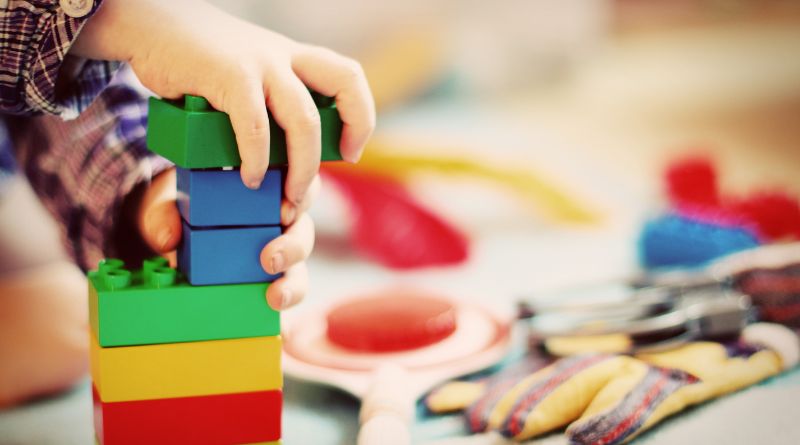Introduction:
Deciding whether your child is ready for kindergarten can be a challenging decision for many parents. Kindergarten is a big step, and it’s important to ensure that your child is prepared both academically and emotionally. This post will explore the key signs that your child is ready for kindergarten, focusing on social, emotional, cognitive, and physical readiness. By understanding these indicators, you can feel confident that your child is prepared to thrive in their new educational environment.
Social Readiness
One of the most important indicators of kindergarten readiness is your child’s social development. In kindergarten, children spend much of their time interacting with peers, participating in group activities, and learning to navigate social dynamics. For this reason, strong social skills are a key component of readiness.
Children who are socially ready for kindergarten typically demonstrate the ability to share, cooperate, and take turns. They understand the concept of fairness and are willing to participate in group activities without needing constant supervision. These skills are essential for working in a classroom setting, where children often need to collaborate on tasks, share materials, and wait their turn.
Another sign of social readiness is how your child interacts with peers. If your child is comfortable making friends, engaging in play with others, and following group rules, they are likely prepared for the social aspects of kindergarten. Being able to communicate effectively, express needs, and resolve minor conflicts independently are also important social milestones.
Overall, if your child enjoys interacting with others, follows social cues, and is able to work within a group, they are showing key signs of social readiness for kindergarten.
Emotional Readiness
Emotional readiness is another critical factor in determining whether your child is prepared for kindergarten. This involves your child’s ability to manage their emotions, handle new situations, and separate from parents without excessive distress.
One of the key signs of emotional readiness is your child’s ability to manage their emotions in a variety of situations. Kindergarten can be a big adjustment, with new routines, environments, and people to get used to. Children who are emotionally ready are typically able to cope with these changes without becoming overly upset or anxious. They may still feel nervous or unsure at times, but they have learned how to calm themselves and adapt to new experiences.
Independence is another important indicator of emotional readiness. Children who are ready for kindergarten should show confidence in their ability to do things on their own, such as dressing themselves, using the bathroom, and making simple decisions. This growing independence is crucial as children will be expected to take on more responsibilities in kindergarten.
Additionally, your child’s ability to handle separation from you is a strong sign of emotional readiness. While it’s normal for children to feel some level of anxiety when separating from their parents, those who are emotionally ready for kindergarten are usually able to say goodbye with minimal distress and adjust quickly to the school environment.
By fostering independence and providing opportunities for your child to practice managing their emotions, you can help them develop the emotional readiness needed for a successful start in kindergarten.
Cognitive Readiness
Cognitive readiness refers to your child’s ability to think, learn, and solve problems, which are all important skills for kindergarten. While formal academics are not the primary focus at this stage, having a basic understanding of literacy and numeracy concepts is a good indicator that your child is cognitively ready for school.
One of the key signs of cognitive readiness is your child’s familiarity with basic literacy skills. This includes recognizing some letters of the alphabet, being able to write their name, and showing an interest in books and stories. Children who are curious about letters and sounds, and who enjoy being read to, are often eager to start learning to read and write more formally.
Numeracy skills are also an important part of cognitive readiness. Children who can count to ten, recognize basic shapes, and understand simple concepts like more and less are demonstrating early math skills that will be built upon in kindergarten. Additionally, showing an interest in counting objects, sorting items by color or size, and recognizing patterns are all signs of cognitive readiness.
Curiosity and a love of learning are perhaps the most significant indicators of cognitive readiness. Children who ask questions, explore their environment, and show a desire to learn about the world around them are well-prepared for the learning opportunities that kindergarten offers. They are more likely to engage with new concepts, participate in classroom activities, and enjoy the process of learning.
By encouraging your child’s curiosity and supporting their early literacy and numeracy skills, you can help ensure they are cognitively ready for the challenges and excitement of kindergarten.
Physical Readiness
Physical readiness is another important aspect of kindergarten readiness, as it ensures that your child can participate fully in both classroom and outdoor activities. This includes the development of both fine and gross motor skills, which are essential for various tasks they will encounter in kindergarten.
Fine motor skills involve the small muscles in the hands and fingers, which are necessary for activities such as holding a pencil, cutting with scissors, and buttoning clothes. Children who are physically ready for kindergarten should be able to perform these tasks with some level of independence. Practicing drawing, coloring, and other hand-eye coordination activities can help your child refine these skills.
Gross motor skills, on the other hand, involve larger movements and coordination, such as running, jumping, and balancing. Kindergarten often includes plenty of physical activity, from playing on the playground to participating in group games. Children who are physically ready for kindergarten should have the stamina to manage a full day of activities and the coordination to participate safely and confidently in physical play.
In addition to motor skills, physical readiness also involves basic self-care abilities, such as using the bathroom independently, washing hands, and managing clothing. These skills ensure that your child can take care of their own needs throughout the school day, which contributes to their overall confidence and independence.
By encouraging active play and providing opportunities for your child to practice fine motor tasks, you can help them develop the physical readiness needed for a successful kindergarten experience.
Communication Skills
Effective communication is a cornerstone of kindergarten readiness. Children who are ready for kindergarten should be able to express their needs, thoughts, and feelings clearly. This involves not only verbal communication but also the ability to understand and follow instructions.
One of the key signs of communication readiness is your child’s ability to engage in basic conversations with both adults and peers. They should be able to respond to questions, share information about themselves, and express their thoughts in a way that others can understand. This skill is important for participating in classroom discussions, following directions, and interacting with teachers and classmates.
Understanding and following verbal directions is another important aspect of communication readiness. In kindergarten, children are often asked to follow multi-step instructions, such as “put your book away, then line up at the door.” Children who can listen carefully, understand what is being asked, and carry out the instructions are showing strong communication skills.
Additionally, being able to ask for help when needed is an important communication skill. Children should feel comfortable approaching their teacher or a classmate if they need assistance or don’t understand something. This ability to seek help ensures that they can navigate challenges and continue learning without becoming frustrated or disengaged.
By fostering strong communication skills at home, you can help ensure your child is ready to express themselves, follow instructions, and engage with others in the kindergarten environment.
Conclusion
Assessing kindergarten readiness involves looking at a range of developmental milestones, from social and emotional skills to cognitive, physical, and communication abilities. By recognizing these key signs, you can determine whether your child is ready to take on the challenges and opportunities that kindergarten offers. With the right preparation and support, your child can start kindergarten with confidence and a strong foundation for future learning.
Read Also:
your topics | multiple stories






